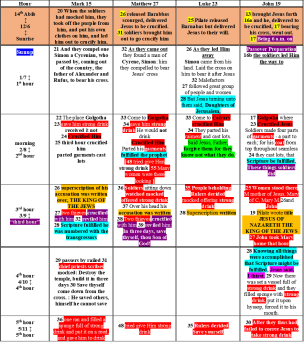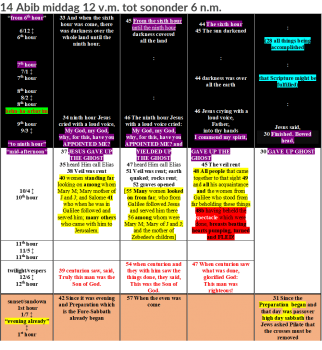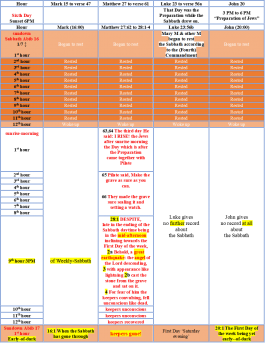RedFan
Well-Known Member
Because his writings were not inspired.
The gospel that the Holy Spirit wrote through him was.
I never said his gospel wasn't inspired. But you and I mean different things by "inspired." To me, it means the writings contain theological truth, not necessarily historical accuracy.
Vern S. Poythress, in an effort to harmonize of Matt. 8:5-13 and Luke 7:2-10, states “We have the accounts in Mathew and Luke, which are inspired by God. They are what God says and are therefore trustworthy. That is the conviction we have and the basis on which we work.” Poythress, Inerrancy and the Gospels: A God-Centered Approach to the Challenges of Harmonization (Crossway 2012) at 21. I take it that you share his view. I don't. This approach seems to me to be reasoning the matter backwards. Inerrancy should be a conclusion from the evidence, not an axiom with which to assess the evidence. My problem with Scriptural inerrancy is not so much that it presumes the thing to be proven as that it presumes that no proof is needed!
Ask an inerrantist whether Jesus sent his apostles out with sandals and staff (Mark 6:8-9) or without them (Matt. 10:10), and the answer will come back “The gospels must have been describing two different missions.” Ask where the “must have” comes from, and the answer ultimately comes back, in words or substance, that the consistency of Scripture is a given.
Even for the inerrantist, it is not crucial to know whether the disciples were sent out with or without sandals for a particular mission. They don’t care which instruction was given, any more than they care whether the law requires driving on the left or on the right side of the road. But they care deeply that only one instruction was given, for otherwise their world would be as chaotic as a world in which the law allowed driving on both sides of the road. If the texts of two gospels give two different answers to any question―even to the issue of apostolic footwear―they care deeply that one of them be explained away.
It’s a slippery slope thing with them. It’s a Luke 16:10 thing. Most of us would not be scandalized in the least by one of two gospel authors getting a theologically-irrelevant detail wrong. But the inerrantist demands literal historical truth on every detail, however minor, because for him, there aren’t two gospel authors. There is only one, and He cannot err.
I do not see the point in downplaying the human element like this. I expect theological truth from my Bible, not factual accuracy on minute historical details. And I am not scandalized by inaccuracies as to the latter. The better approach, in my opinion, is to focus on the inerrancy of the message of a given passage, rather than of the extraneous details with which the passage is adorned.








